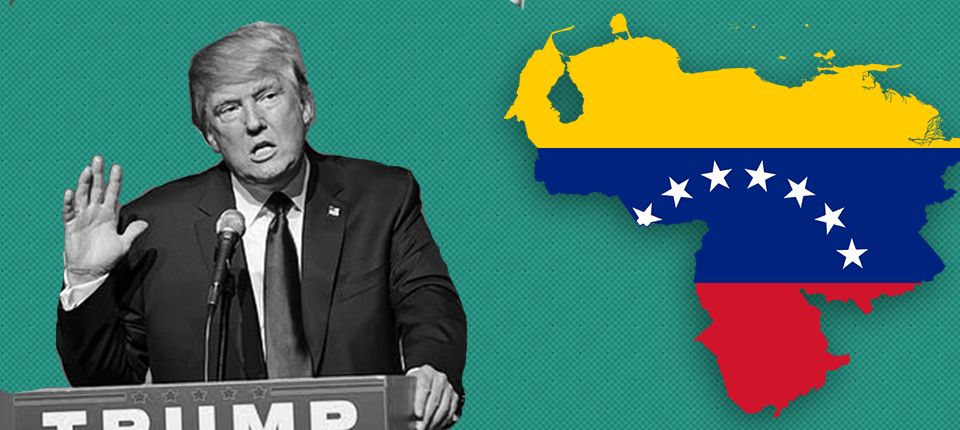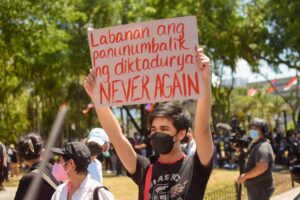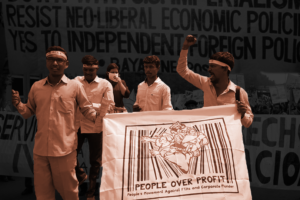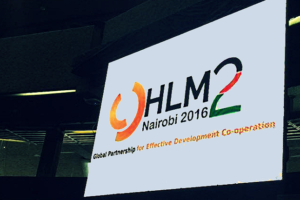IBON International Statement
3 February 2019
On January 23, 2019, Juan Guaidó, in an opposition rally, declared that he is taking up interim presidential powers in Venezuela. Guaidó is the leader of the opposition-led National Assembly. [i] He belongs to the Popular Will party, one of the parties with a history of opposing the Chavez-led government.
The United States (US) government under Trump quickly hailed Guaidó as the “legitimate leader” of the country. Warning that the US government would use the “full weight of [its] diplomatic and economic pressure,”[ii] Trump also stated that “all options are on the table” when it comes to Venezuela. The country is known to have the largest proven oil reserves in the world. Trump’s government called on other Western Hemisphere states to follow the US,[iii] and has been heeded by other elite-led states of the global North and in Latin America and the Caribbean (LAC).
IBON International is concerned about this aggressive posture of the US, which compromises the right of the Venezuelan people to determine the direction of their domestic political, social and economic life. The Trump administration’s move continues the offensive foreign policy of the US amidst an international order where it has to contend with other powers. This has already heightened militarism and conflict in other regions and provoked sharper rifts in the international community of states.
A more interventionist US policy on Venezuela and other non-US allies in the region was already foreseen when national security advisor John Bolton called Venezuela, Cuba and Nicaragua a “troika of tyranny” in the region last year. In August 2017, Trump remarked that a “military option” in Venezuela is not ruled out.[iv] These alone are alarming given the longer history of US-supported dictators and elites in the LAC region during the 20th century up to today.
The US government has used various sanctions against the Venezuelan government, such as restrictions on certain exports and cash flows.[v] According to one independent analysis, the Venezuelan economy has already lost USD 6 billion from sanctions since 2017.[vi]More recent sanctions targeted the country’s central bank as well as the state-owned oil company[vii] – which according to Bolton will result to a loss of USD 11 billion in export incomes for the next year.[viii]
These sanctions are further obstacles to people’s development prospects. Indeed, a UN Independent Expert claimed that current sanctions, such as those imposed by Presidents Obama and Trump, “attempt to bring…sovereign countries to their knees,” and “contravene the human rights obligations of the countries imposing them.”[ix]
IBON International stands with the Venezuelan people that continue to endeavour for societies where development is felt and owned by the toiling sectors, and for societies that defend their sovereignty from subjection to the interests of global powers such as the US. #
[i]http://time.com/5510942/juan-guaido-venezuela-interim-president-trump/
[ii]https://www.theguardian.com/world/2019/jan/23/enezuela-trump-president-juan-guaido-maduro-recognition-news-latest
[iii]https://www.whitehouse.gov/briefings-statements/statement-president-donald-j-trump-recognizing-venezuelan-national-assembly-president-juan-guaido-interim-president-venezuela/
[iv]https://www.nytimes.com/2017/08/12/world/americas/trump-venezuela-military.html?module=inline
[v]https://globalcompliancenews.com/us-sanctions-venezuela-20170918/
[vi]https://venezuelanalysis.com/analysis/14073?fbclid=IwAR3r1i8rRhotCO2Xq2olJ1u4Ei0PsyW2IpNDn3vrTqAS-_mh9GQgOEztaCs
[vii]https://www.treasury.gov/resource-center/sanctions/Programs/Documents/20190128_ven_eo.pdf
[viii]https://apnews.com/dbc0e01d010d41dba3576393c47c860e
[ix]http://ap.ohchr.org/documents/dpage_e.aspx?si=A/HRC/39/47/Add.1




